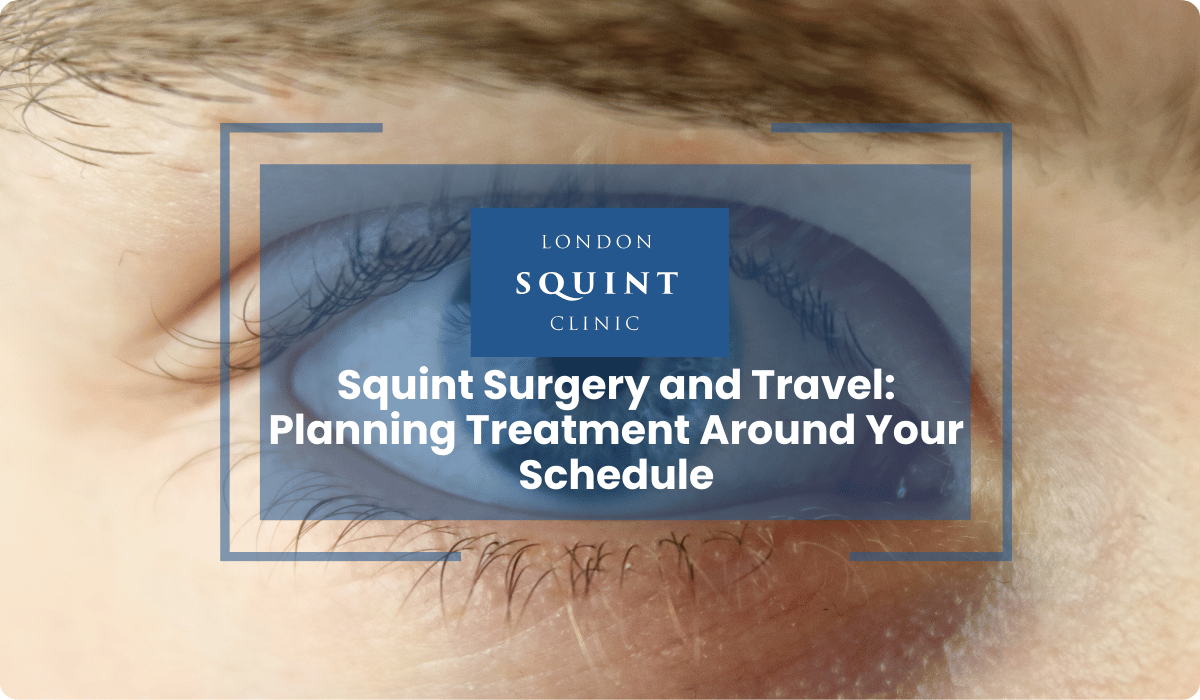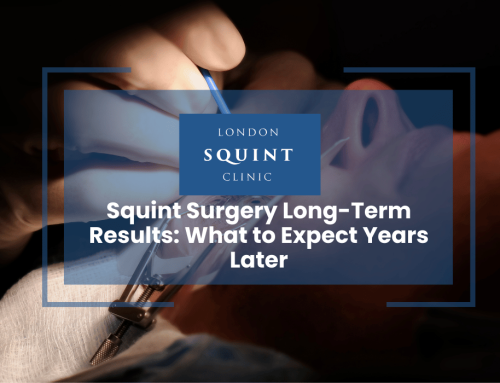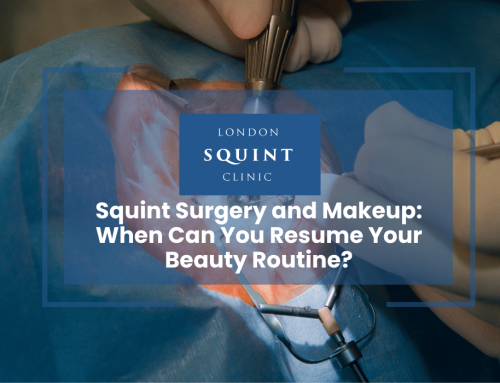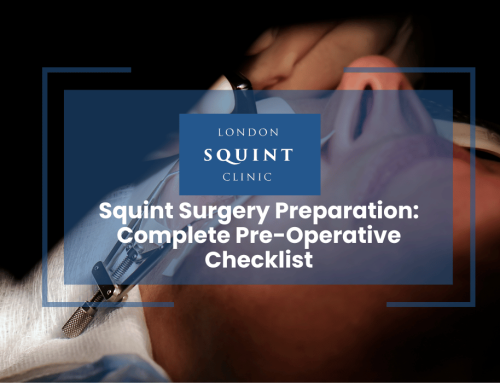Squint Surgery and Travel: Planning Treatment Around Your Schedule
Planning for Success: Ensuring a Smooth Recovery and Enjoyable Travel Experience
When considering squint surgery, careful planning is essential to ensure a successful outcome and a smooth recovery, especially when travel is involved. By taking into account factors such as the complexity of the procedure, mode of transportation, and destination, patients can optimize their recovery and minimize the risk of complications. Open communication with the surgeon is key to receiving personalized advice and guidance throughout the treatment and recovery process. Whether combining surgery with a vacation or traveling as an international patient, choosing a reputable clinic and allowing sufficient time for healing can help ensure a positive experience and the best possible results.
Here is the blog post content with the specified sections and formatting:
Table of Contents
- What is Squint Surgery and How Does it Impact Travel Plans?
- Factors to Consider When Scheduling Squint Surgery Around Travel
- How Soon Can You Fly After Squint Surgery?
- Tips for a Smooth Recovery When Traveling After Squint Surgery
- Combining Squint Surgery with a Vacation: Pros and Cons
- What to Discuss with Your Surgeon When Planning Travel After Treatment
- Squint Surgery for International Patients: Special Considerations
What is Squint Surgery and How Does it Impact Travel Plans?
Squint surgery, also known as strabismus correction, is a procedure that aims to realign the eyes to improve vision and cosmetic appearance. The surgery involves adjusting the muscles that control eye movement to correct any misalignment. While squint surgery is a relatively straightforward procedure, it does require some recovery time and may impact travel plans in the short term. Patients considering squint surgery should factor in their upcoming travel commitments when scheduling the procedure to ensure a smooth recovery and optimal results.
Factors to Consider When Scheduling Squint Surgery Around Travel
When planning squint surgery around travel, several factors should be taken into account. Firstly, the type and complexity of the squint correction will determine the length of the recovery period. More complex procedures may require a longer recovery time before travel can be safely undertaken. Secondly, the mode of transportation should be considered, as flying may have different restrictions compared to driving or taking a train. Patients should also factor in the duration and destination of their trip, as well as any planned activities that may impact their recovery.
How Soon Can You Fly After Squint Surgery?
The timing of air travel after squint surgery is a common concern for patients. In general, it is recommended to wait at least a week after the procedure before flying. This allows sufficient time for the initial healing process and reduces the risk of complications such as changes in eye pressure or infection. However, the exact timing may vary depending on individual circumstances and the surgeon’s advice. Patients should discuss their travel plans with their surgeon to determine the most appropriate time frame for flying after squint correction.
Tips for a Smooth Recovery When Traveling After Squint Surgery
To ensure a smooth recovery when traveling after squint surgery, patients should follow their surgeon’s post-operative instructions carefully. This may include using prescribed eye drops, wearing protective eyewear, and avoiding strenuous activities. When traveling, it is important to maintain good hygiene practices to minimize the risk of infection. Patients should also be prepared to manage any discomfort or visual disturbances that may occur during the recovery period. Taking regular breaks, using artificial tears, and protecting the eyes from bright sunlight can help alleviate symptoms and promote healing.
Combining Squint Surgery with a Vacation: Pros and Cons
Some patients may consider combining their squint surgery with a vacation, a practice known as medical tourism. While this can be an attractive option, there are both advantages and disadvantages to consider. On the positive side, combining surgery with a relaxing vacation can provide a pleasant environment for recovery and may even be more cost-effective in certain destinations. However, it is crucial to choose a reputable surgeon and facility to ensure the highest standards of care. Patients should also be prepared for the possibility of unexpected complications or the need for follow-up care in a foreign country.
What to Discuss with Your Surgeon When Planning Travel After Treatment
When planning travel after squint surgery, it is essential to have an open discussion with your surgeon. Key topics to cover include the recommended time frame for travel, any specific precautions or restrictions, and the availability of follow-up care if needed. Patients should also inform their surgeon of their travel destination, mode of transportation, and planned activities to receive personalized advice. It may be helpful to schedule a follow-up appointment before the trip to ensure that the eyes are healing well and to address any concerns.
Squint Surgery for International Patients: Special Considerations
International patients seeking squint surgery in London face additional considerations when planning their treatment and travel. At the London Squint Clinic, we offer a dedicated service for overseas patients, with our Gatwick Airport location providing convenient access for those traveling from abroad. We recommend that international patients allow sufficient time before and after their surgery for travel and recovery, taking into account any visa requirements or travel restrictions. Our team can provide guidance on accommodation options and local support services to ensure a smooth and stress-free experience for our international patients.
Frequently Asked Questions
How long after squint surgery do I need to wait before traveling?
It is generally recommended to wait at least a week after squint surgery before traveling, especially if flying. However, the exact timing may vary depending on the type of surgery, individual healing progress, and the surgeon’s advice. It is essential to discuss your travel plans with your surgeon to determine the most appropriate time frame for your specific case.
Can I fly immediately after squint surgery?
No, it is not advisable to fly immediately after squint surgery. Most surgeons recommend waiting at least a week before flying to allow sufficient time for the initial healing process and to reduce the risk of complications such as changes in eye pressure or infection. Patients should consult their surgeon for personalized advice based on their individual circumstances.
Is it safe to combine squint surgery with a vacation abroad?
While combining squint surgery with a vacation abroad, known as medical tourism, can be appealing, it is essential to carefully consider the potential risks and benefits. Patients should choose a reputable surgeon and facility, be prepared for the possibility of unexpected complications, and ensure they have access to appropriate follow-up care. It is crucial to discuss the safety and feasibility of combining surgery with a vacation with your surgeon.
What precautions should I take when traveling after squint surgery?
When traveling after squint surgery, patients should follow their surgeon’s post-operative instructions carefully, maintain good hygiene practices, and be prepared to manage any discomfort or visual disturbances. Precautions may include using prescribed eye drops, wearing protective eyewear, avoiding strenuous activities, taking regular breaks, using artificial tears, and protecting the eyes from bright sunlight.
How can international patients prepare for squint surgery in London?
International patients seeking squint surgery in London should allow sufficient time before and after their surgery for travel and recovery, taking into account any visa requirements or travel restrictions. They should choose a reputable clinic with experience in treating overseas patients, such as the London Squint Clinic, which offers a dedicated service for international patients at its convenient Gatwick Airport location. Patients should also discuss their travel plans, accommodation options, and local support services with their chosen clinic to ensure a smooth and stress-free experience.
Find out if you are suitable for Double Vision Treatment
Not everyone is eligible for double vision surgery.
Find out if you could benefit from this life-changing surgery by taking the quick self-suitability quiz below:
Our most popular procedures

Hello, I’m Nadeem Ali
I’m one of the few eye surgeons in the world with 100% focus on Squint and Double Vision Surgery.
I have 24 years of eye surgery experience, and worked for 13 years as a Consultant at London’s renowned Moorfields Eye Hospital.
In 2023, I left the NHS to focus fully on treating patients from across the world at the London Squint Clinic. You can read more about me here.
There’s lots of information on the website about: squint surgery, double vision surgery and our pricing.
The most rewarding part of my job is hearing patients tell me how squint or double vision surgery has changed their lives. You can hear these stories here.
Mr Nadeem Ali
MA MB BChir MRCOphth FRCSEd(Ophth)





